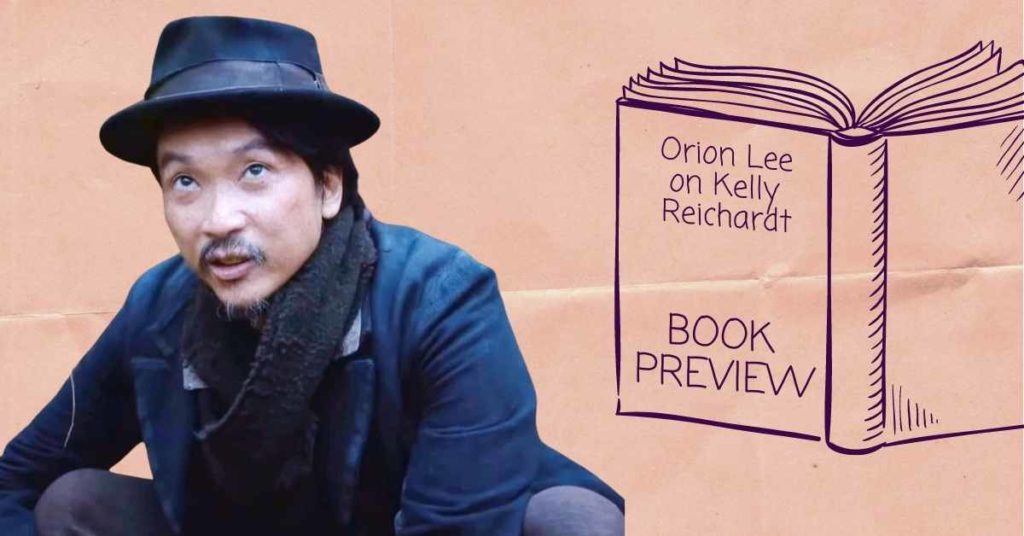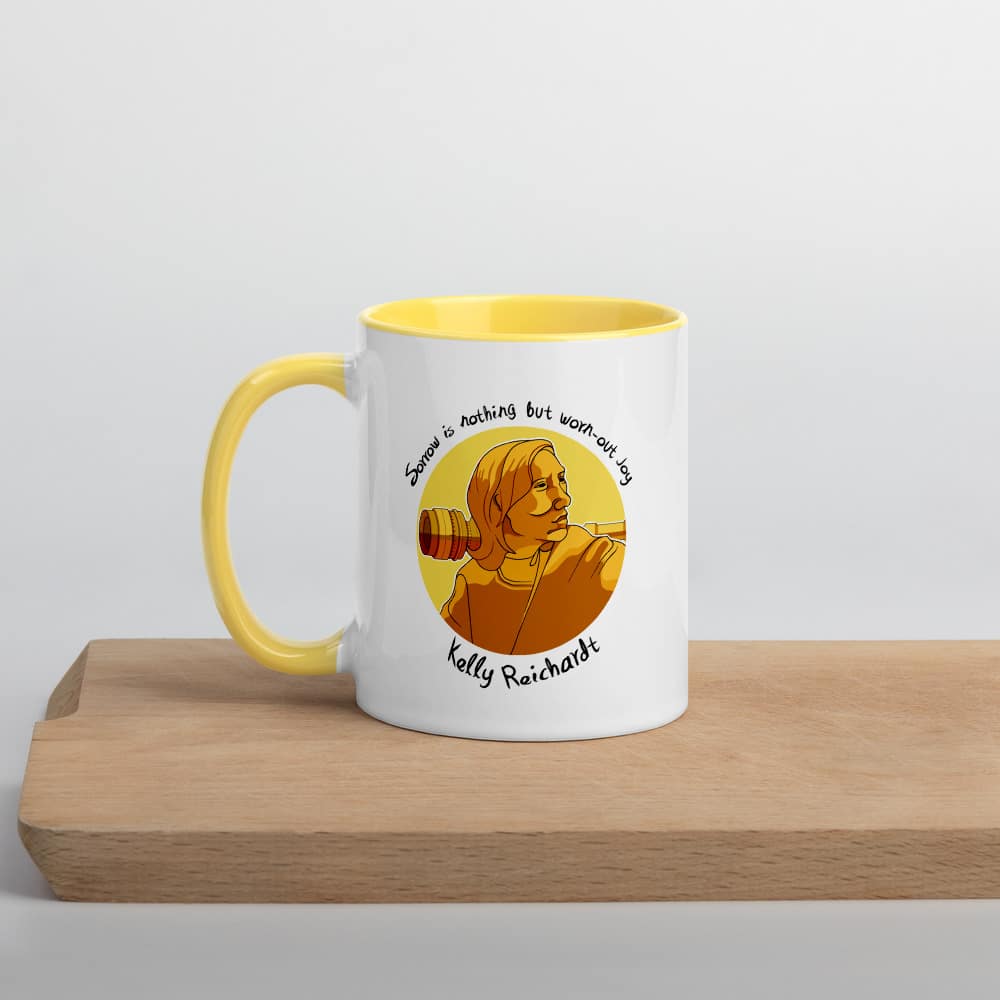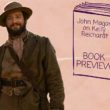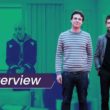Actor Orion Lee discusses his affinities with his First Cow character King-Lu, and how we prepared to play the itinerant entrepreneur. This is an excerpt of our Reichardt ebook, Roads to nowhere. The book features an in-depth case study on the film First Cow.

Discover one film you didn’t know you needed:
Not in the zeitgeist. Not pushed by streamers.
But still easy to find — and worth sitting with.
And a guide to help you do just that.
“I am King-Lu,” Orion Lee told me of his character in First Cow. “I traveled around a lot, and have an itinerant lifestyle. King-Lu is a person who belongs everywhere and belongs nowhere, and that’s kind of inherent in me.” Like King-Lu, Lee is also thoughtful, articulate, and speaks with a soft, gentle tone. It’s mesmerizing to hear him think aloud.
As the chattier of the two leads in First Cow, King-Lu may initially seem like Cookie’s opposite. Indeed, Reichardt told Lee that she wanted to bring that aspect of his character out. But Lee “was always looking for similarities between Cookie and King-Lu. I don’t believe opposites attract; I believe similarities attract.” You often see those similarities emerge by how quickly they each acquiesce to the other’s ideas. Cookie never needs convincing whenever King-Lu proposes a dangerous plan, and King-Lu quickly takes on Cookie’s dream of owning a bakery and hotel as his own ambition.
After training in acting at the London Academy of Music and Dramatic Art (LAMDA), Lee began his career working for a number of prestigious theatre companies, including the National Theatre of Scotland, the Royal Shakespeare Company, the Royal Court, and the Abbey Theatre (National Theatre of Ireland). He has since expanded his work to TV and film, recently with a key role in the wonderful miniseries Chimerica (Lucy Kirkwood, 2019), but First Cow is his first major leading role on film.
Seventh (7R): What was your process for developing the character of King-Lu from when you got the script to when you got on set?
Orion Lee: The first thing is that I get it [the character] as an audition. I get the script with two or three scenes. I read the script right through a couple of times and just respond to it. Because it’s an audition, it is focused on two or three scenes.
What scenes did I have? It was the one by the river where I’m making some rope and talking to him [Cookie] about his dream to open a bakery and a hotel. The second one was that first scene where I appear [to Cookie for the first time]. Going through that idea of the trauma [that King-Lu has experienced], and then also going through that scene, which encapsulates the friendship, that sort of begins that whole process. What’s this person been through? You start to work with that material [and develop] a kind of backstory.
The audition process was to do the tape, get the email note, do another tape, and then I had a discussion with Kelly for about an hour and a half on Skype. Then, I did another tape, and I got the job.
Once I got the job, it was looking at the script as a whole and deepening my understanding of the character, and also what Kelly wanted from it. For example, one of the main things Kelly wanted was to have Cookie and King-Lu be different — obviously, fast friends, but different energies and personalities.
King-Lu was much more of a salesman, potentially a con artist. It was understanding what it is that made him that way. A lot of the time before is me making up the backstory. I work on why is this person the way he is now, when we see them in the film?

Kelly Reichardt mug: ‘Sorrow is just worn-out joy’
7R: What kind of research did you do into the time period to understand the character? He’s really traveled the world, so I imagine that could require quite a lot of research.
Orion Lee: I was born in Hong Kong. I lived in Malaysia. I moved to Australia for my high school years. I grew up in Perth, in Australia. After uni, I lived in Switzerland for six months. I lived in San Francisco and New York for three months. Then, when I got back from my travels, I went to Sydney, and then I moved to London to study acting at LAMDA. Now, I’m based out of LA, as well as London. I am King-Lu. I traveled around a lot, and have an itinerant lifestyle. King-Lu is a person who belongs everywhere and belongs nowhere, and that’s kind of inherent in me.
We got various materials from Kelly and the production team, which just gives more and more detail about life during that time period. You can read up about the Oregon Trail. Life was so much more basic in that period.
We also had three days and two nights with a re-enactor, which was really useful. He tries to live life as authentically as possible as in the 1820s, during that fur-trapping period. He just does that as a hobby. We went up to a local farm and camped out with him, learned about how to skin an animal, and how to do basic traps with sticks and stones, and then there’s basic cooking. I learned how to do my owl call.
I learned how to make fire. You’re kind of struck by how making a fire today, it’s like, get a lighter: click. Making a fire back then, you had to prepare the wood; you had to make sure that it was dry; you had to get tinder, and again, make sure that that was dry. Which meant then you had to have a pouch, which was waxed so that would be waterproof. And then you have to find the flint and then the stone, which would create the sparks. It’s such a whole process that you have to go through, and that’s true for everything.
You have to be able to do everything. You have to be able to cook. You have to be able to trap. You have to be able to mend your own clothes. And everything took so long, partly because you’re not that good at everything. Whereas now, we live in a very specialized society. You’ve got cooks who are cooks, and doctors who are doctors, and clothes menders who are clothes experts. But back then, you kind of had to be everything and know a bit about everything to survive.
All of this sort of goes into the grist of the mill that rolls around in the head, and starts to solidify those things about the character and the themes. I’ve been very practical about things, actually trying it, actually skinning an animal and making the trap myself. Just physically doing it gives you that depth. And then, you’ve got to forget it and actually do the acting. Well, not forget it — you’re still doing it, but then you’ve got to do acting through that… THIS IS A PREVIEW. READ THE FULL INTERVIEW IN ROADS TO NOWHERE: KELLY REICHARDT’S BROKEN AMERICAN DREAMS.
Want to read the rest of the article?
Get the ebook.
Roads to nowhere: Kelly Reichardt’s broken American dreams will take you on a journey through Reichardt’s filmography.
It’s also the only place you can find interviews with her and all her collaborators, which together reveal Reichardt’s filmmaking process like never before.

